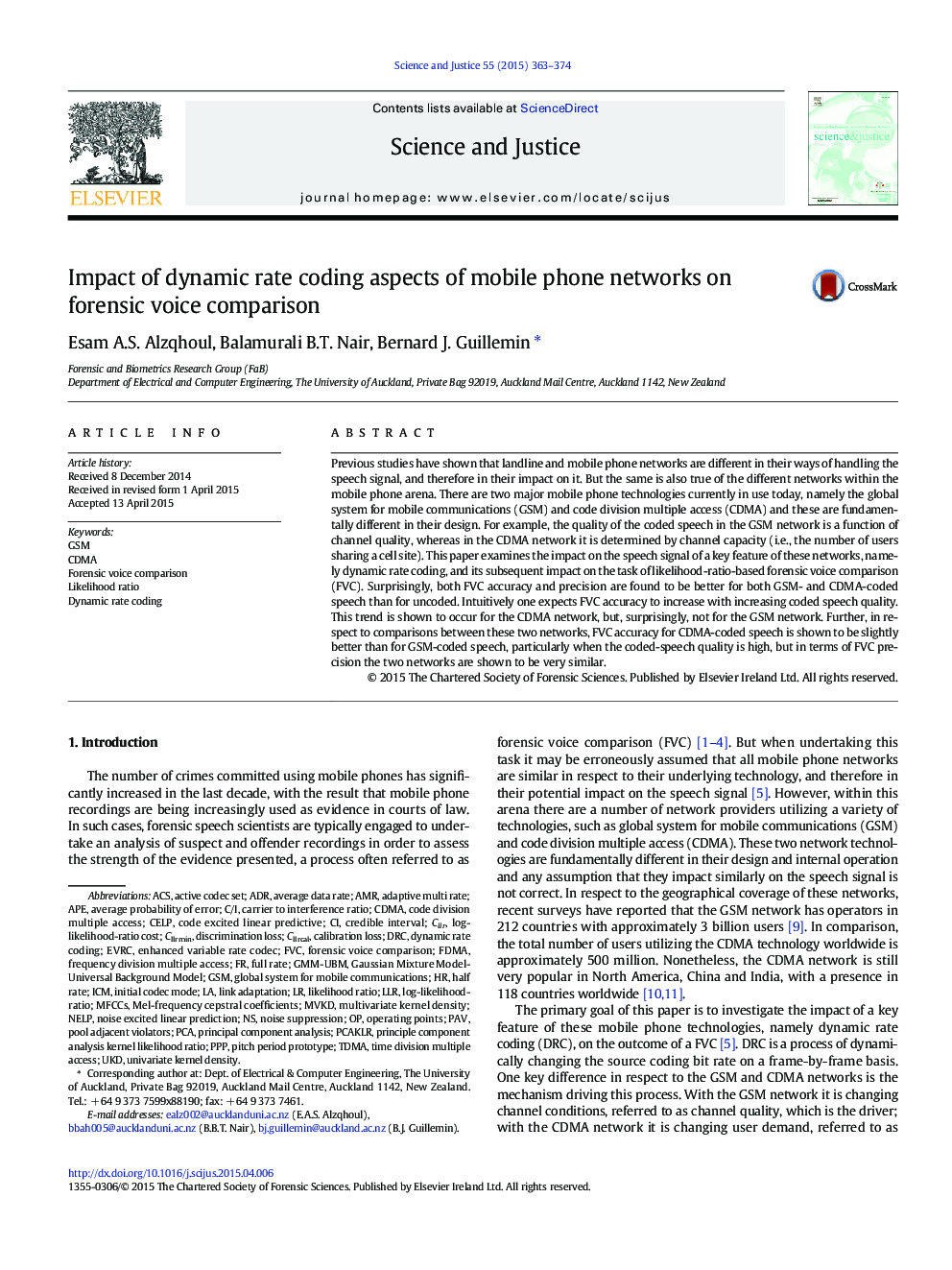| Article ID | Journal | Published Year | Pages | File Type |
|---|---|---|---|---|
| 106930 | Science & Justice | 2015 | 12 Pages |
•Mobile phone networks include different technologies — GSM and CDMA.•Impact of dynamic rate coding on forensic voice comparison (FVC) is investigated.•In FVC, mobile coded speech resulted in higher accuracy, precision than the uncoded.•Accuracy of FVC when using CDMA coded speech is better than that of GSM.•Coded speech resulted in a similar precision irrespective of the mobile networks.
Previous studies have shown that landline and mobile phone networks are different in their ways of handling the speech signal, and therefore in their impact on it. But the same is also true of the different networks within the mobile phone arena. There are two major mobile phone technologies currently in use today, namely the global system for mobile communications (GSM) and code division multiple access (CDMA) and these are fundamentally different in their design. For example, the quality of the coded speech in the GSM network is a function of channel quality, whereas in the CDMA network it is determined by channel capacity (i.e., the number of users sharing a cell site). This paper examines the impact on the speech signal of a key feature of these networks, namely dynamic rate coding, and its subsequent impact on the task of likelihood-ratio-based forensic voice comparison (FVC). Surprisingly, both FVC accuracy and precision are found to be better for both GSM- and CDMA-coded speech than for uncoded. Intuitively one expects FVC accuracy to increase with increasing coded speech quality. This trend is shown to occur for the CDMA network, but, surprisingly, not for the GSM network. Further, in respect to comparisons between these two networks, FVC accuracy for CDMA-coded speech is shown to be slightly better than for GSM-coded speech, particularly when the coded-speech quality is high, but in terms of FVC precision the two networks are shown to be very similar.
